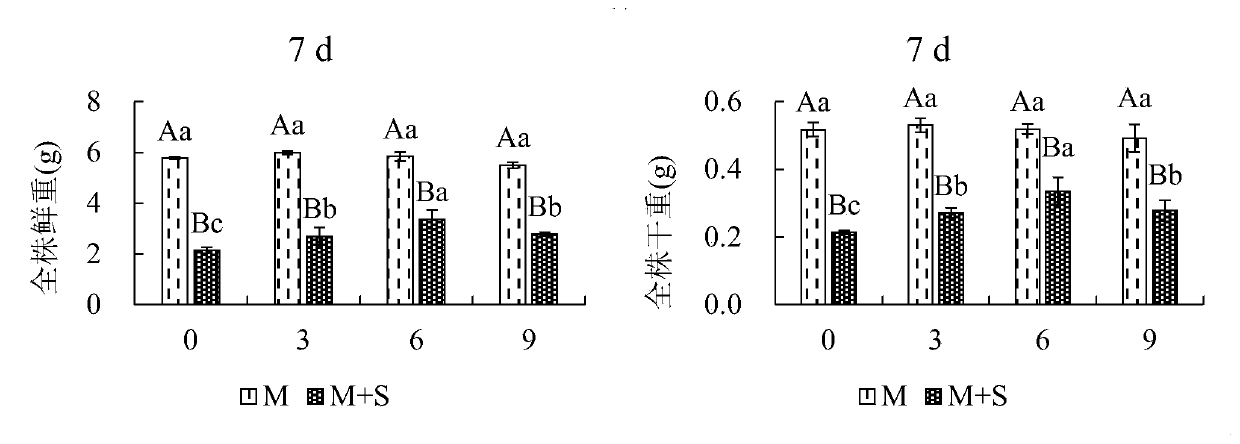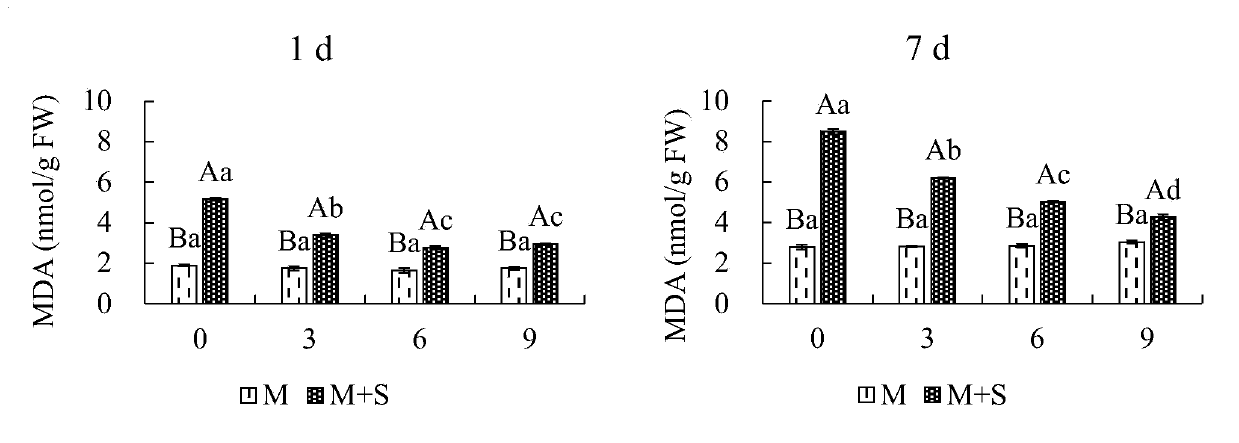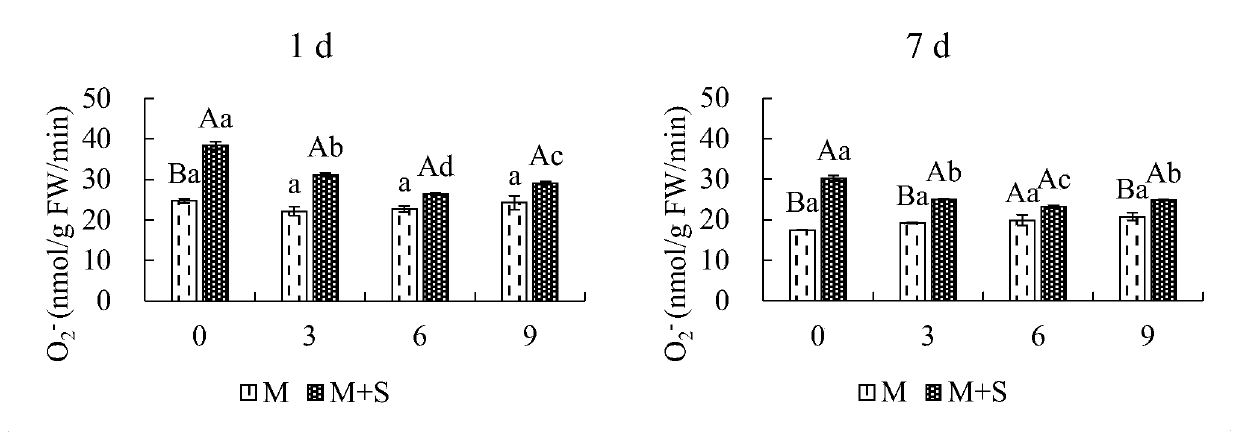Application of exogenous melatonin to improvement of salt tolerance of beet seedlings
A melatonin and salt-tolerance technology is applied in the application field of exogenous melatonin to improve the salt-tolerance of sugar beet seedlings, and can solve problems such as the lack of application of genes
- Summary
- Abstract
- Description
- Claims
- Application Information
AI Technical Summary
Problems solved by technology
Method used
Image
Examples
Embodiment Construction
[0039] The present invention will be further described below in conjunction with specific examples, but the present invention is not limited to the following examples.
[0040] The invention discloses the application of melatonin in increasing the activity of antioxidant enzymes and the content of osmotic adjustment substances in plant tissues.
[0041] The plant tissue is in a salt-stressed environment. Further, the plant is a Chenopodiaceae dicotyledonous plant. The concentration of the active ingredient in the melatonin is 3-9 mM. The dicotyledonous plant of Chenopodiaceae is sugar beet KWS0143 (KWS company, Germany).
[0042] The invention also discloses an accelerator for antioxidant enzyme activity and osmotic adjustment substances in plant tissues, the active ingredient of which is melatonin (analytical pure, Sigma company).
[0043] Culture conditions: Sow the seeds in pots with vermiculite, place them in a plant growth room (23 / 18°C, day / night), light 14 hours a da...
PUM
 Login to View More
Login to View More Abstract
Description
Claims
Application Information
 Login to View More
Login to View More - R&D
- Intellectual Property
- Life Sciences
- Materials
- Tech Scout
- Unparalleled Data Quality
- Higher Quality Content
- 60% Fewer Hallucinations
Browse by: Latest US Patents, China's latest patents, Technical Efficacy Thesaurus, Application Domain, Technology Topic, Popular Technical Reports.
© 2025 PatSnap. All rights reserved.Legal|Privacy policy|Modern Slavery Act Transparency Statement|Sitemap|About US| Contact US: help@patsnap.com



